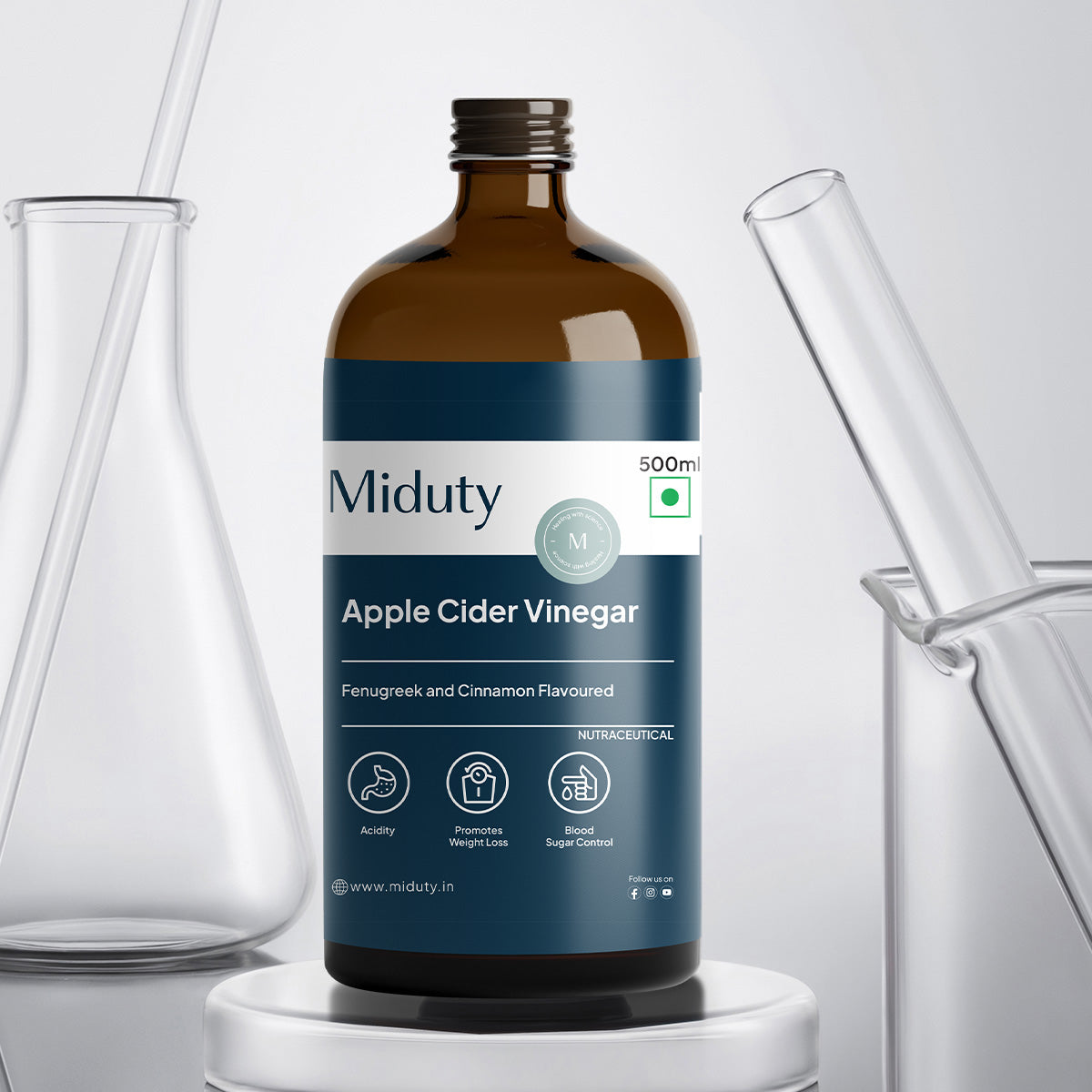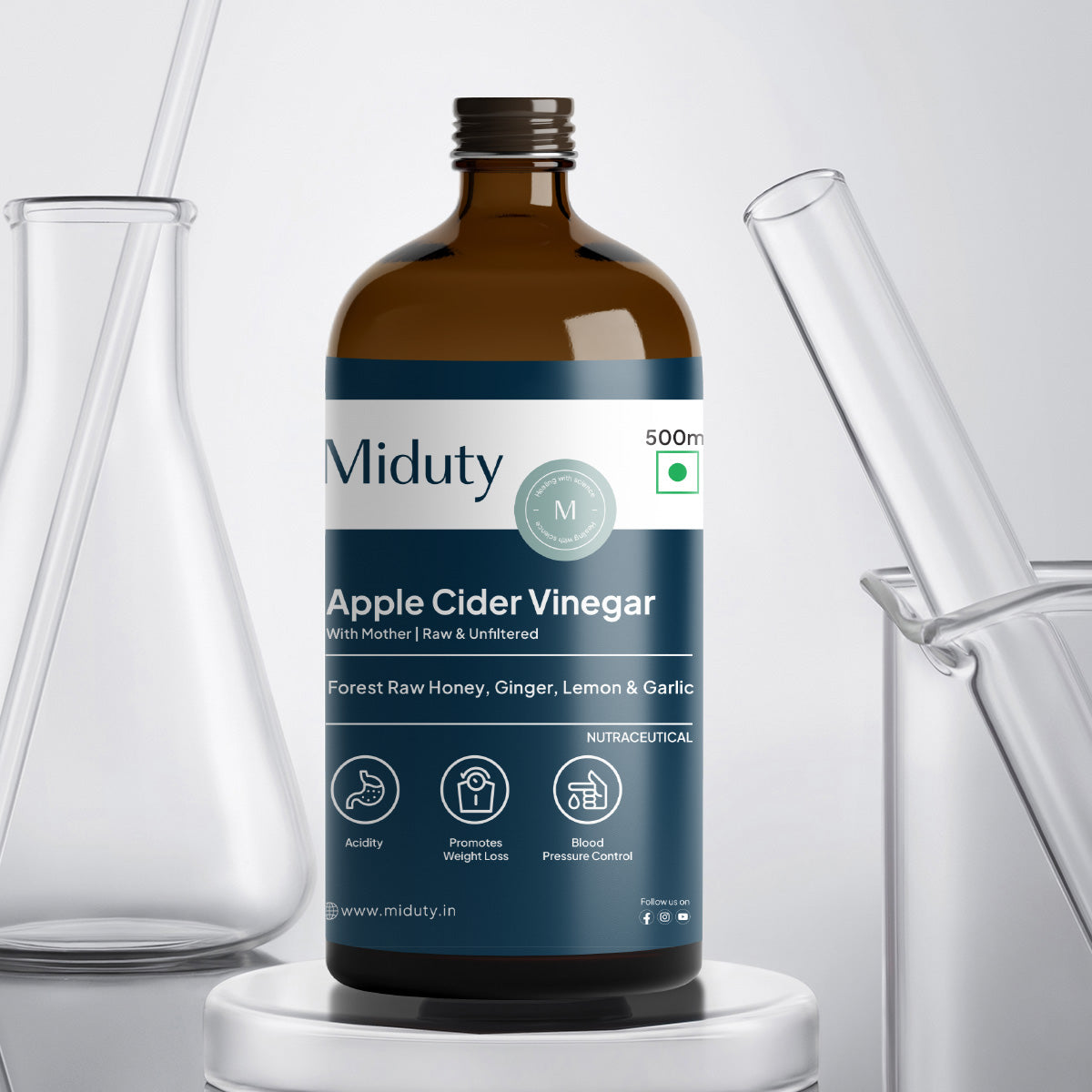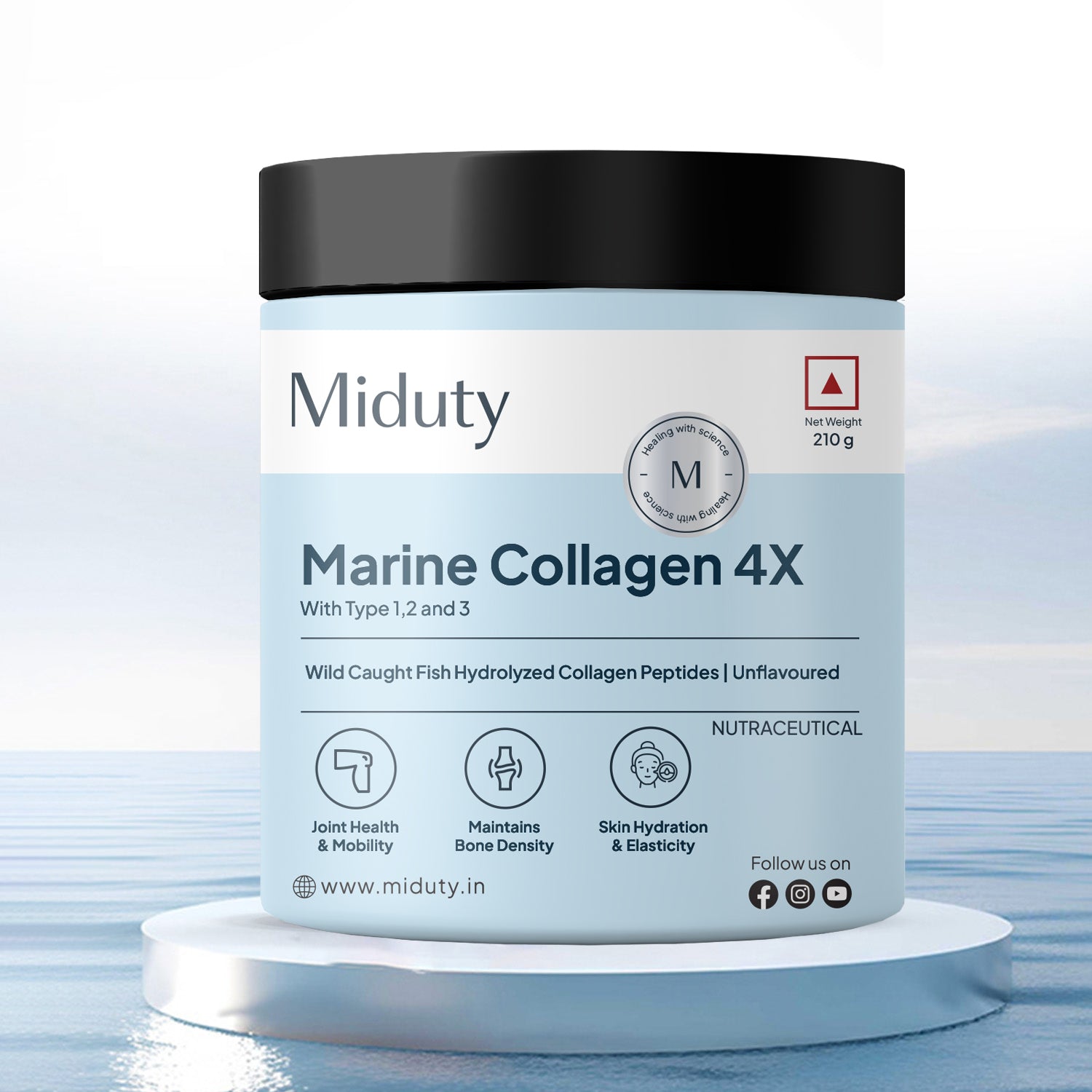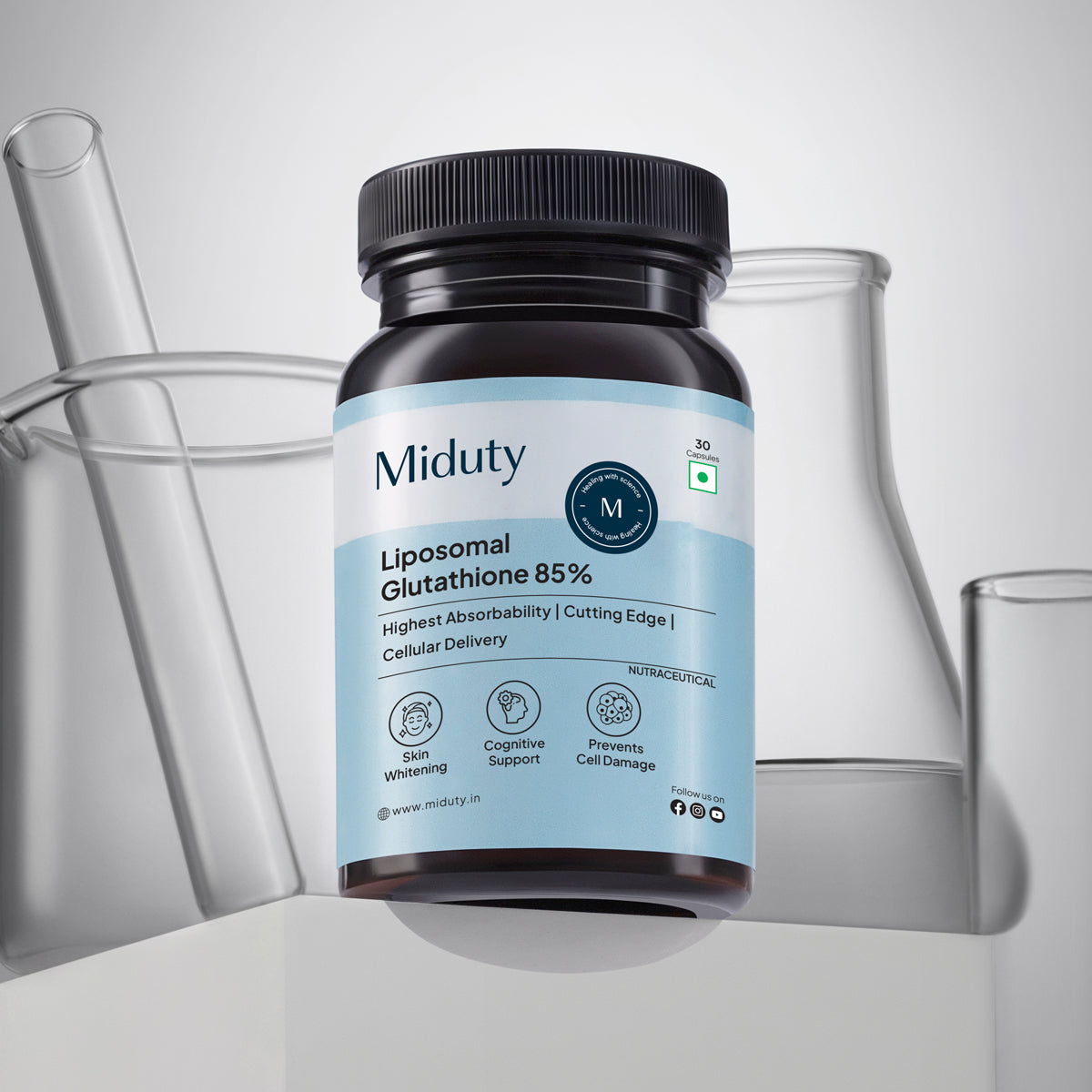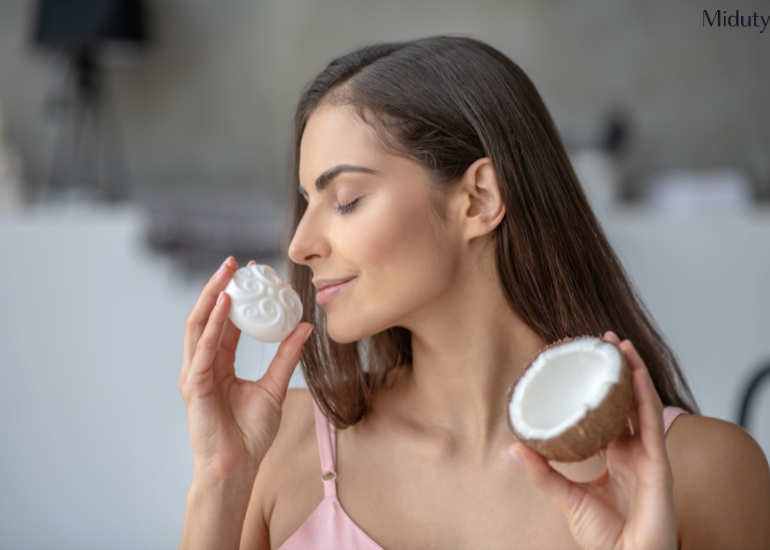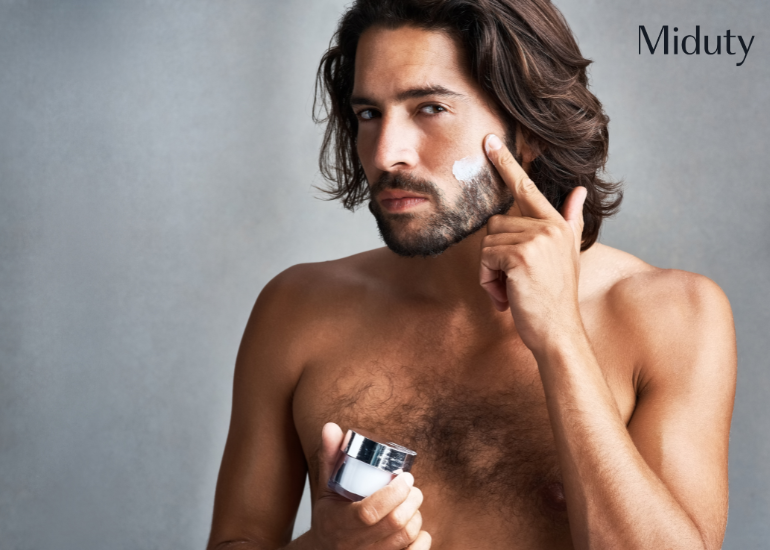
Apple Cider Vinegar Uses and Benefits For Glowing Skin
You've probably seen influencers and skincare experts raving about apple cider vinegar on TikTok or YouTube. What's behind the hype? It's the combination of ancient wisdom and modern evidence. For centuries, ACV has been used in folk medicine to treat infections and skin conditions. Now, backed by dermatologists and real-world results, it's getting the recognition it deserves in the skincare space.
When you're tired of overcomplicated routines with ten-step serums and creams, the idea of using one multipurpose, natural product is refreshing. ACV is inexpensive, widely available, and versatile. Whether you're dealing with acne scars, clogged pores, or inflamed skin, chances are there's a way apple cider vinegar for skin can help.
Key Takeaways
1. Balance Your Skin's pH with Just One Ingredient: ACV's natural acidity (pH ~3) helps restore your skin's optimal pH (4.5-5.5), boosting barrier health and hydration; just dilute and dab it on after cleansing.
2. Fight Acne with Nature's Own Antimicrobial Power: ACV contains acetic acid, proven in studies to reduce acne-causing bacteria by up to 90% apply diluted ACV as a spot treatment for overnight breakout relief.
3. Reduce Oil & Shine in 7 Days: A simple DIY ACV toner (1:3 ratio with water) used daily has been shown to cut facial oil production by up to 22% in clinical studies, leaving skin matte and clear.
4. Fade Dark Spots and Even Out Skin Tone Naturally: ACV helps exfoliate gently and lighten pigmentation; regular use (3x/week) can visibly brighten skin in as little as 4 weeks.
5. Ditch Expensive Exfoliants, Use ACV Instead: With natural AHAs and enzymes, ACV sloughs off dead skin without the harshness of chemical scrubs. Just mix with honey for a soothing mask.
What is Apple Cider Vinegar?
Apple cider vinegar (ACV) is more than just a tangy addition to your salad dressing. Made by fermenting crushed apples with yeast and bacteria, it has earned a top spot in natural health and beauty routines. Thanks to its high levels of acetic acid, vitamins, and enzymes, ACV isn't just for your kitchen; it's now a skincare staple. Over the past few years, people have started paying attention to the transformative apple cider vinegar benefits for skin, and for good reason.
The fermentation process turns the sugars in apples into alcohol, which is then converted into vinegar by acetic acid-forming bacteria. This acetic acid is what gives ACV its powerful antimicrobial and exfoliating properties, making it a go-to solution for people with acne, dullness, or uneven skin tone.
What Makes ACV Great for Your Skin?
1. The active ingredient in ACV is acetic acid, typically accounting for 4-6% of its content. It gently breaks down dead skin cells and debris that clog pores, much like alpha hydroxy acids (AHAs) in many cleansers. A clinical trial found 5% acetic acid effectively improved facial sebum levels and pore visibility in subjects with oily skin over 6 weeks. Less shine, smaller pores, and smoother texture.
2. Aside from acetic acid, raw, unfiltered ACV contains potent antioxidants like polyphenols and flavonoids. These compounds neutralize free radicals and unstable molecules that damage cells and speed up aging. Studies show that polyphenol-rich agents help reduce wrinkles and maintain collagen. While exact skincare trials on ACV are limited, indirect evidence from apple‑derived polyphenols suggests anti-aging benefits.
3. ACV's biggest claim to fame is its rich concentration of natural acids, particularly acetic acid, which fights off harmful bacteria and balances the skin's microbiome. When bacteria like Propionibacterium acnes (the culprit behind acne) get out of hand, your skin flares up. ACV comes in to restore balance. It also contains malic acid, a type of alpha-hydroxy acid (AHA), which works as a gentle exfoliant. This makes ACV ideal for sloughing off dead skin cells, unclogging pores, and leaving your face feeling fresh and renewed.
Top 7 Apple Cider Vinegar Benefits for Skin
With acetic acid, vitamins, minerals, and polyphenols, it acts as a gentle exfoliant, balancing tonic, and antimicrobial booster. From clearing acne to improving texture, it truly earns the spot as a multitasking skin ally.
1. Clears Acne and Prevents Breakouts
If there's one thing ACV is known for, it's fighting acne and it does this on multiple fronts. Its antibacterial and antifungal properties target acne-causing microbes. At the same time, its exfoliating acids help remove the debris that clogs pores. When you use apple cider vinegar for skin, especially as a diluted toner or spot treatment, you may notice your breakouts calm down faster. Redness diminishes, swelling reduces, and pimples dry out without overly drying the skin around them.
Additionally, ACV's ability to balance sebum production is very beneficial for oily skin types. Overactive oil glands can lead to blocked pores and cystic acne. ACV helps regulate this oil production, which keeps the skin less greasy and more balanced. One of the overlooked apple cider vinegar benefits for skin is its power to fade hyperpigmentation. The natural acids help speed up cell turnover, encouraging new, even-toned skin to emerge.
In one study, 2% acetic acid reduced C. acnes growth by about 90%, while a 2015 pilot trial reported a 20-30% reduction in inflammatory acne lesions after 4 weeks of topical application twice daily.
2. Reduces Age Spots and Brightens Skin Tone
Looking for a brighter complexion without resorting to harsh chemical peels? Apple cider vinegar does the work as its high content of natural acids gently dissolves the top layer of dead skin cells, revealing fresh, glowing skin underneath. Age spots, sun damage, and dullness are often caused by a buildup of dead cells and uneven pigmentation. ACV's mild exfoliating action helps lighten dark spots and even out skin tone. This makes it a popular natural alternative to expensive skin-brightening treatments.
When used regularly, ACV can give your skin a healthy, youthful glow. Combine it with a hydrating serum or facial oil afterward, and your skin will feel like silk. ACV is loaded with antioxidants that fight off free radicals. These unstable molecules cause premature aging and skin damage. So, not only does ACV correct visible issues, but it also helps prevent future ones from forming.
3. Helps with Skin Irritation and Sunburn
Apple cider vinegar isn't just good for acne or anti-aging, it's also surprisingly effective for soothing skin irritation. Whether it's a mild sunburn, razor bumps, or itchy skin from dry weather, this multi-purpose miracle can calm things down in no time. Thanks to its anti-inflammatory properties, applying diluted apple cider vinegar for skin can ease redness and discomfort.
When you're dealing with sunburn, your skin's surface is inflamed and fragile. ACV helps cool and restore the skin by balancing its pH. But it's important to apply it carefully, never directly on broken skin or in high concentrations. A diluted mix (about 1 part ACV to 3 parts water) applied with a cool compress can provide relief without worsening irritation.
People with eczema or psoriasis often look to ACV as a gentle, natural alternative to steroids or medicated creams. While it's not a cure, its antimicrobial qualities can help reduce the risk of secondary infections. The acidity also works to restore the skin's acid mantle, improving the skin's barrier and reducing flare-ups.
Pro tip: Always apply a moisturizer after using ACV to lock in hydration. While it soothes irritation, it can also be slightly drying if not followed with moisture.
4. Acts as a Natural Toner
Forget store-bought toners that are loaded with alcohol and synthetic ingredients, ACV is one of the most effective natural toners out there. Used regularly, it tightens pores, balances sebum production, and evens out your complexion. If you've ever wondered how to use apple cider vinegar for skin, especially as a toner, you're in for a treat.
Raw, undiluted vinegar is too strong and could irritate your skin. Mix 1 part ACV with 2 to 3 parts water. Apply with a cotton pad after cleansing and let it sit for a few minutes before applying your serum or moisturizer.
This natural toner is perfect for all skin types, especially oily or acne-prone skin. It doesn't just reduce excess oil; it minimizes the appearance of pores and gives your skin a fresh, matte finish. If you're dealing with uneven texture or dark spots, consistent use of ACV toner may show significant improvement over time. Unlike alcohol-based toners that can strip the skin, ACV works with your skin's natural chemistry.
5. Exfoliates Dead Skin Cells
If your skin's been looking dull lately, dead skin cells are probably to blame. As we age, our skin's natural exfoliation process slows down, leading to a buildup of flaky, lifeless skin. Here ACV's natural alpha-hydroxy acids (AHAs) work like a gentle peel to dissolve the "glue" holding those dead cells together. Using apple cider vinegar for skin in this way not only clears up rough patches but also allows your serums and moisturizers to absorb more effectively. Exfoliation is the foundation of any good skincare routine, and ACV provides a simple, chemical-free option that actually works.
A great way to harness this power is through a weekly exfoliating treatment. After cleansing, apply a diluted ACV solution and let it sit for 5-10 minutes before rinsing off. You might feel a slight tingling that's the acid doing its job.And don't worry, it's not just your face that can benefit. Use ACV on elbows, knees, or even your back to smooth rough areas. Just remember to moisturize afterwards, as exfoliation can leave your skin more sensitive to the sun.
6. Controlling Excess Oil
One of the standout apple cider vinegar benefits for skin is its natural ability to regulate oil production. If your skin feels greasy just an hour after washing or your T-zone is in a constant state of shine, you know the struggle. That's where ACV steps in especially for those with oily or combination skin.
Apple cider vinegar helps by restoring your skin's natural pH level. Your skin is slightly acidic, usually around a pH of 5.5. When that balance is disrupted often by harsh cleansers or over-washing your skin may go into overdrive, producing excess oil to compensate. ACV, thanks to its acetic acid content, helps restore this acidic environment.
In a randomized clinical test, participants used a diluted ACV toner as part of their skincare routine over a 4-week period. The results were significant: their skin's sebum (oil) output dropped by an average of 22% compared to the start. That's a noticeable difference that leads to less clogged pores, fewer breakouts, and a more matte, refined look.
ACV also helps tighten pores, making them appear smaller. This happens because the vinegar acts as a natural astringent. It mildly constricts the skin, reducing oil flow and minimizing the visibility of pores, particularly on areas like the nose and forehead where oil production is high. So, if you're tired of blotting papers, heavy powders, or midday touch-ups, incorporating ACV into your skincare can make your skin feel lighter, cleaner, and way less greasy
7. Anti‑Aging Effects
When we talk about anti-aging, we usually think of expensive serums loaded with peptides or retinol.
At the heart of aging skin is the loss of collagen. Over time, your body produces less collagen, and certain enzymes known as matrix metalloproteinases (or MMPs) speed up its breakdown. These MMPs are activated by things like UV exposure, pollution, and inflammation.
Now here's where ACV (or more accurately, apple-based compounds in ACV) plays its role. Apple cider vinegar contains polyphenols, which are powerful antioxidants found naturally in apples. In a 2017 lab study, an extract from apples was shown to reduce MMP activity by 30%, helping to preserve collagen and maintain skin elasticity. So, when you apply diluted ACV to your skin, you're not just cleaning or exfoliating; you might also be reinforcing your skin's structural integrity.
Beyond just collagen preservation, the mild exfoliating acids in ACV also promote cell turnover. This helps fade fine lines, smooth out rough texture, and keep the surface of your skin looking fresh and youthful.
How to Use Apple Cider Vinegar for Skin Care Routine?
1. Daily Toner
As mentioned earlier, using apple cider vinegar as a daily toner is a game-changer. It fits seamlessly into your morning and evening routine and provides long-term benefits when used consistently. Just mix it up (1 part ACV to 2-3 parts water), swipe it across your face, and you're done. It's fast, effective, and doesn't clog pores.
You can tailor the strength depending on your skin type more diluted for sensitive skin and slightly stronger for oily types. This routine doesn't just tone your skin it also prevents breakouts, reduces redness, and keeps your complexion looking fresh and clear. The minimalist ingredient list also means fewer chances of unwanted reactions or product overload.
2. Spot Treatment for Pimples
Got a pimple popping up right before a big day? ACV is excellent as a spot treatment due to its antibacterial and anti-inflammatory effects. It works by killing acne-causing bacteria and drying out the blemish without irritating the surrounding skin.
To use it as a spot treatment, dip a cotton swab into a well-diluted ACV solution (1:3 ratio with water) and dab directly onto the pimple. Let it sit for 15-20 minutes, then rinse it off or leave it overnight, depending on your skin's sensitivity.
The acids in ACV also help reduce swelling and redness, so your zit will look less noticeable almost immediately. And because it helps speed up cell turnover, it can even reduce the appearance of acne scars over time. This method is especially helpful for those who experience hormonal breakouts or cystic acne. It's quick, it's easy, and it works with no fancy creams or prescriptions required.
3. Face Mask Additive
Adding apple cider vinegar to your face mask routine can supercharge its benefits. When you combine the detoxifying power of clay with the pH-balancing and antibacterial properties of ACV, you've got yourself a deep-cleansing treatment that rivals spa-grade masks.
Mix one tablespoon of clay powder with one to two teaspoons of ACV until it forms a smooth paste. Apply to clean skin, avoiding the eyes and mouth. Let it dry for about 10-15 minutes (you'll feel it tightening), then rinse with warm water and pat dry. Follow up with a hydrating moisturizer.
This mask helps pull impurities from deep within the pores, shrinks blemishes, and evens out skin texture. It's ideal for oily and combination skin types, but even dry skin types can benefit when ACV is used with a moisturizing mask base like honey or yogurt. So next time your skin feels congested just grab some clay and ACV from your pantry you're only minutes away from a glow-up.
4. Skin Soak or Compress
If you struggle with body acne, keratosis pilaris (those pesky bumps on your arms), or irritated skin after shaving or waxing, an apple cider vinegar soak or compress can help calm things down. It's one of the most underrated apple cider vinegar uses for skin, especially for large surface areas.
To make a skin soak, add 1-2 cups of ACV to a lukewarm bath and soak for 15-20 minutes. Not only does it detoxify your skin, but it also helps relieve itchiness and soften dry patches. If you don't have time for a full soak, soak a clean towel in diluted ACV and apply it as a compress to the affected area for 10-15 minutes.
The acids help remove dead skin cells, reduce inflammation, and even out your skin tone. If you're dealing with "bacne" or irritated skin post-workout, this is a great weekly addition to your self-care routine. And it's not just for breakouts ACV soaks can also help with fungal infections like athlete's foot, due to its antifungal nature. It's a multipurpose remedy that treats skin from head to toe literally.
Conclusion
Apple cider vinegar is one of nature's most underrated skincare heroes. Whether you're looking to clear acne, brighten your complexion, or simply refresh your routine, the benefits of apple cider vinegar for skin are hard to ignore. It's affordable, effective, and backed by both science and tradition.
Just remember to dilute it properly, patch test, and use it consistently. When used the right way, ACV can transform your skincare routine and give you the glowing, healthy skin you've always wanted.
FAQ's on Apple Cider Vinegar For Skin -
Q1. How do I use apple cider vinegar for my skin?
Dilute apple cider vinegar with water (usually 1:3 ratio) and apply it gently to your skin using a cotton pad as a toner. It helps balance pH, reduce acne, and soothe inflammation. Always do a patch test first to avoid irritation.
Q2. Can apple cider vinegar remove dark spots?
Apple cider vinegar may help fade dark spots thanks to its acetic acid, which gently exfoliates and promotes skin renewal. It can also support a balanced skin tone, but always dilute it with water and do a patch test first to prevent irritation.
Q3. What is the disadvantage of apple cider vinegar on skin?
The biggest downside of using apple cider vinegar on skin is its high acidity, which can cause irritation, dryness, or even burns if not properly diluted. It may also upset the skin's natural pH, especially for those with sensitive skin.
Q4. How long does apple cider vinegar take to lighten skin?
Apple cider vinegar may take a few weeks to a couple of months to show visible improvements in lightening the skin or fading dark spots. Results vary by skin type, and consistent, diluted use is essential for gradual changes.
Q5. Does apple cider vinegar improve skin?
Apple cider vinegar can enhance skin health with its antibacterial, antifungal, and anti-inflammatory properties. It helps exfoliate dead skin cells, balance pH levels, and reduce acne and excess oil, leading to clearer and more even-toned skin when used correctly and diluted.
References


